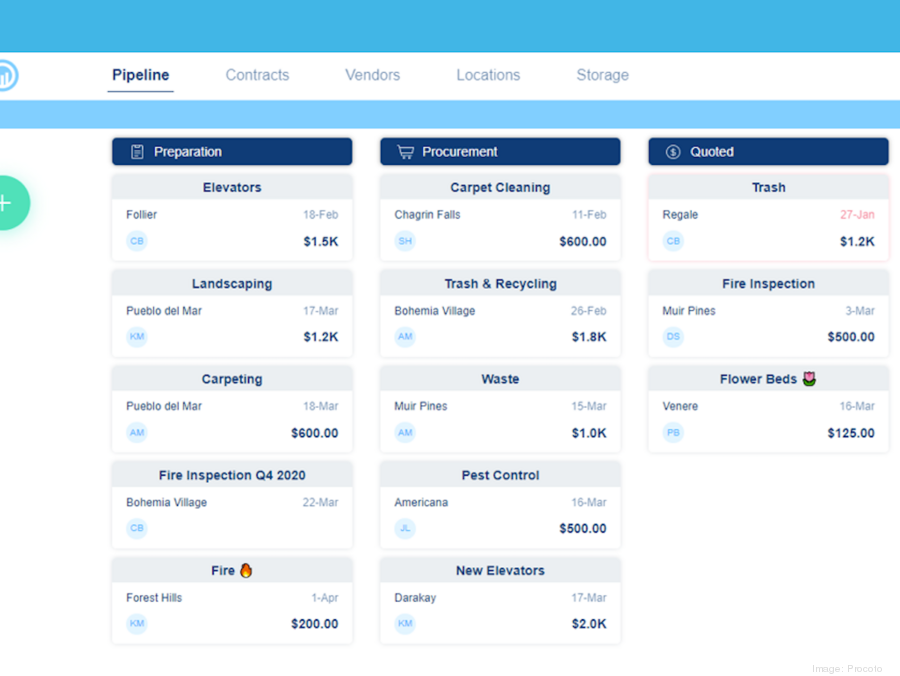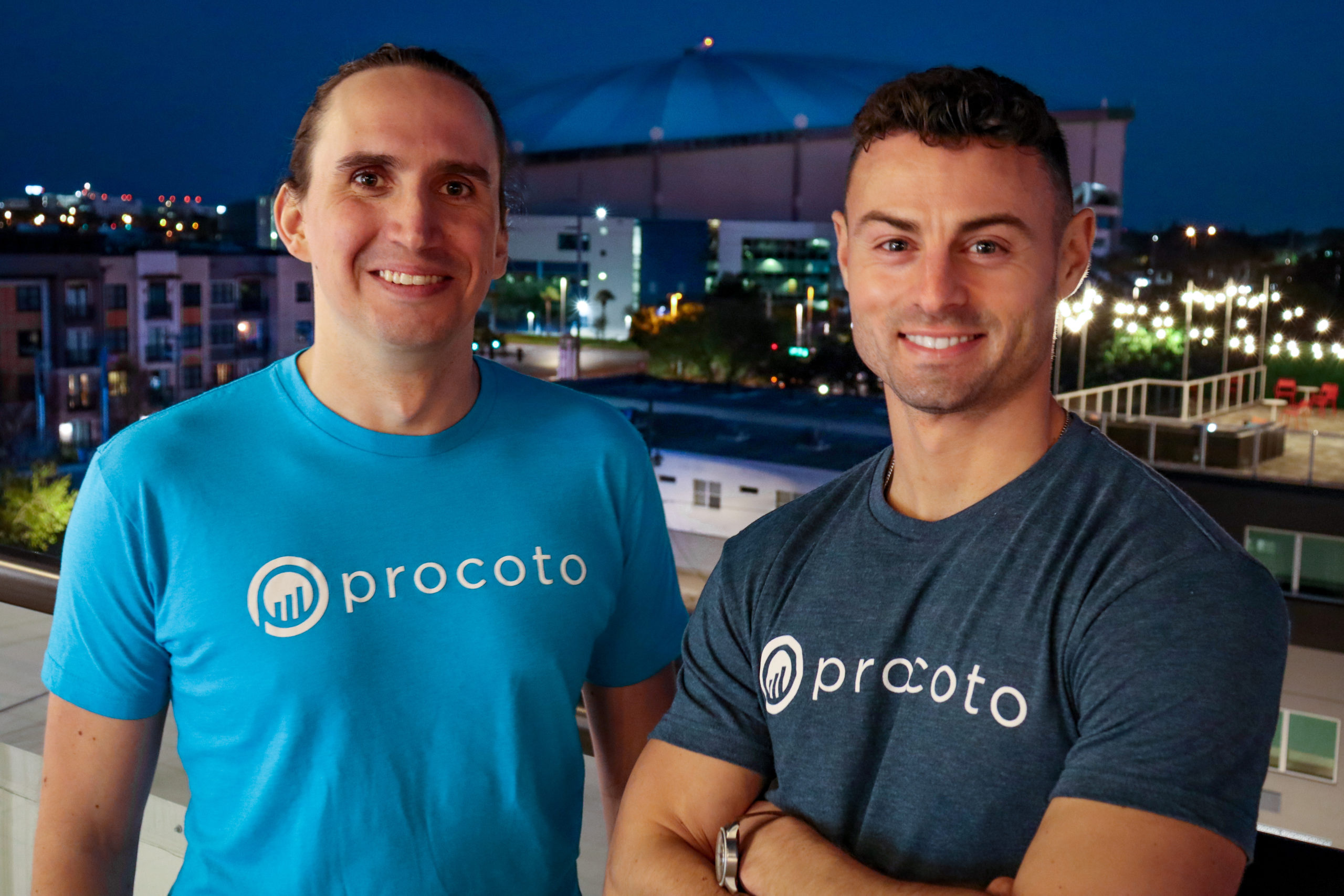While the Tampa Bay region has seen an influx of startups and large corporations alike flocking to town due to its affordability, accessibility to New York and its work-life balance, Procoto co-founder Michael Otis decided to relocate from Atlanta to the Bay area for an even simpler reason.
“It wasn’t that I disliked the startup community; I do talk to everyone there and will leverage a lot of those relationships, but from a personal perspective, Atlanta is pretty landlocked,” Otis said with a chuckle. “And it killed me I wasn’t close to the beach.”
Once Otis began doing his homework on the Tampa-St. Petersburg region, the area’s growing startup scene made the decision official. He moved here in mid-February, joining his co-founder, Ryan Muckel, who came to the region at the end of 2020 from England after working for medical software giant Epic Systems.
Now that they are settled, the duo can grow their company — which is largely aided by a recent acceptance into Silicon Valley’s prestigious Y Combinator program.
“That honestly was a factor in our initial plans: Ryan was going to come to Atlanta and leverage the connections I had here,” Otis said. “And I’ll still have those connections remotely, but getting into Y Combinator allows us more freedom where your network isn’t limited.”
With acceptance into the program comes roughly $125,000 worth of funding. The company will go through the 12-week program, joining another local startup that’s also been accepted into the latest class. At the end, it will present during a Demo Day on March 23 and is seeking roughly $1 million in a seed round.
This is Otis’ second company but the 29-year-old’s first true enterprise software startup. After working as a consultant for years as a tech-enabled broker, Otis was able to get a peek into the procurement systems at corporations including Wal-Mart, Best Buy and more.
“And I saw they did a terrible job — the software used makes their job much more difficult, and then on the flip side the person who runs a warehouse couldn’t see how their process could be improved,” he said. “I couldn’t find a solution that was easy to onboard, user friendly and affordable, which is absurd because once you get to 10 employees, you really need something to manage contracts.”

Otis is hopeful that Procoto, launched in 2020, will provide an easy-to-use option for midsize companies to better manage their spending, typically tracked across a number of spreadsheets and systems.
“The tools available today are really only meant for 1,000 employees and require two weeks of training; it’s not user friendly,” he said. “Ours is. You set it up and running immediately; you figure it out in a matter of seconds.”
Right now, the company is targeting businesses with under 500 employees and less than $100M in third-party spend, with the goal to be the lower-cost, more user friendly alternative to its competitors.
“These multisite groups are large companies that need a way to manage this,” he said. “The CEO throws his hand in the air and knows he needs to manage it but doesn’t know how to fix that site A is paying 30 percent more than site B.”
With the move comes the question of a physical headquarters office. While Otis said Procoto eventually hopes to have some office space, mainly to help build office culture, right now they’re joining most of America and working out of coworking spaces or other fitting spots.
“We’re both big believers to have the in-person aspect to work,” he said. “It would never be full time, but especially with early-stage interns, building culture and hiring younger employees, it’s important. But, we’re going to keep the company remote for the foreseeable future — we’re both beach and sunshine people, so we figured if we could run the company from anywhere, it might as well run by some water.”


